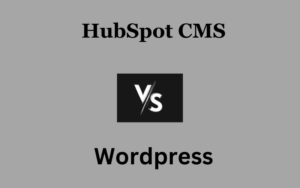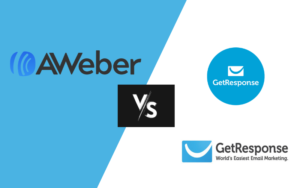In today’s fast-paced digital economy, the term B2C (Business-to-Consumer) has become a cornerstone of how businesses operate, especially in e-commerce. Whether you’re shopping on Amazon or subscribing to Netflix, you’re engaging in a B2C transaction. But what exactly is B2C, and how does it work? In this comprehensive guide, we’ll dive deep into the B2C model, explore its types, and compare it to other business models like B2B.
By the end of this guide, you’ll have a complete understanding of what Business-to-Consumer means for businesses and consumers alike.
What is B2C?
Business-to-Consumer, refers to the process in which businesses sell products or services directly to individual consumers. Unlike B2B (Business-to-Business), which involves companies selling to other businesses, Business-to-Consumer focuses on the end customer—the everyday consumer.

In a B2C model, the business markets and sells products with the consumer’s immediate needs, desires, and preferences in mind. From online retailers to streaming services, B2C businesses are everywhere, offering convenience, accessibility, and personalization in shopping experiences.
How B2C Works
In the Business-to-Consumer model, businesses take on a customer-centric approach. This means:
- Marketing: Businesses need to appeal directly to the emotions, needs, and preferences of consumers. Effective marketing strategies often include personalized ads, social media campaigns, and targeted offers.
- Sales Process: The B2C sales process is typically shorter than B2B. Consumers make decisions quickly, based on emotion, need, or desire. They might buy a product after seeing an ad or hearing a recommendation from a friend.
- Purchase: Transactions in B2C often happen in real-time. Consumers pay for products or services using credit cards, digital wallets, or other payment methods, and they expect fast delivery or instant access.
Examples
- E-commerce platforms like Amazon, eBay, and Shopify stores.
- Subscription services like Netflix, Spotify, and HelloFresh.
- Retail stores like Walmart, Best Buy, and Target.
- Digital products like e-books, online courses, and software.
Types of B2C Models
There are several distinct Business-to-Consumer models that businesses use to interact with consumers:
1. E-commerce
The most common model today is e-commerce. Platforms like Amazon and Alibaba allow consumers to purchase products online and have them delivered to their doorstep.
2. Direct Sellers
These are traditional businesses that sell products directly to consumers, whether online or in-store. Think of local grocery stores or fashion retailers with both physical and online presences.
3. Online Intermediaries
Platforms like eBay or Airbnb connect buyers and sellers, acting as intermediaries in Business-to-Consumer transactions. These platforms don’t own the products; instead, they provide a marketplace for others to sell.
4. Advertising-Based Models
Platforms like Facebook, YouTube, and Google offer free services to consumers but generate revenue through targeted advertising. In this model, businesses pay to place their ads in front of consumers.
5. Subscription-Based Models
In this model, consumers pay a recurring fee to access products or services, such as Netflix, Spotify, or even meal subscription services like Blue Apron. This ensures a steady revenue stream for the business while offering consumers convenience.
B2C vs. B2B: What’s the Difference?
The main difference between B2C and B2B lies in the target audience. Business-to-consumer companies market and sell directly to consumers, while B2B businesses sell products or services to other businesses. Here’s a quick comparison:
| Aspect | Business-to-Consumer | B2B |
|---|---|---|
| Target Audience | Individual consumers | Companies and organizations |
| Sales Process | Short, often based on emotions or impulse | Longer, relationship-based |
| Marketing Focus | Emotional appeal, wide audience | Logical, solution-focused |
| Transaction Value | Typically lower (e.g., a single product) | Higher-value deals |
| Examples | Retailers, e-commerce stores, subscription apps | Software companies, industrial suppliers |
Key Advantages of B2C
Businesses choose the Business-to-Consumer model for several reasons, such as:
1. Larger Consumer Base
In this, businesses can market their products to millions of consumers worldwide. This broad target audience allows for faster scalability, especially in digital markets.
2. Easier to Scale Online
Online platforms make it easier for Business-to-Consumer companies to expand. With e-commerce tools, businesses can sell products and services 24/7, breaking geographical barriers.
3. Direct Feedback from Consumers
B2C companies can engage directly with consumers through reviews, social media, and customer service. This allows businesses to quickly adjust their offerings to meet consumer demands.
Challenges in B2C
While it offers numerous advantages, businesses in this space face unique challenges:
1. Consumer Behavior Unpredictability
Consumer preferences can change rapidly due to trends, economic conditions, and competition. Business-to-Consumer companies must be agile and adapt quickly to shifting demands.
2. Intense Competition
The Business-to-Consumer market, especially in e-commerce, is highly competitive. New entrants and global players continually put pressure on businesses to innovate and offer better customer experiences.
3. High Marketing Costs
In the B2C space, marketing and customer acquisition can be expensive. With the need for targeted advertising, social media presence, and promotions, businesses must allocate a significant budget for marketing.
Conclusion
This model is vital to modern commerce, driving innovations in how businesses reach and engage consumers. From e-commerce giants to local shops, businesses in this sector thrive on consumer behavior, technological advancements, and marketing strategies. As consumer demands continue to evolve, the Business-to-Consumer space will remain dynamic and full of opportunities.





Pingback: How to Convince a Client to Accept Your Business Proposal: Best explanation (2024) - RPMSNKHU Reviews